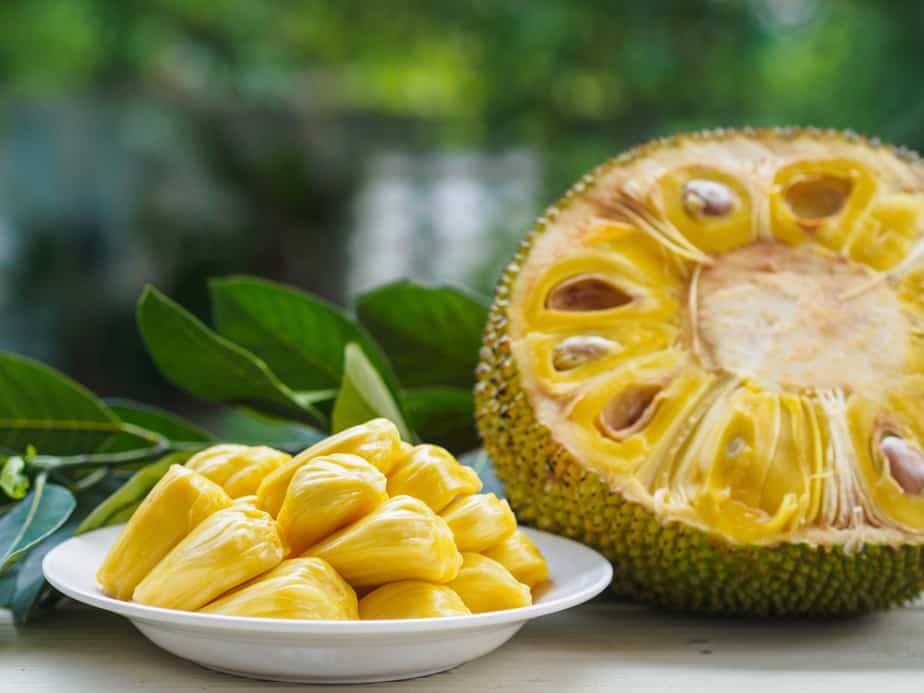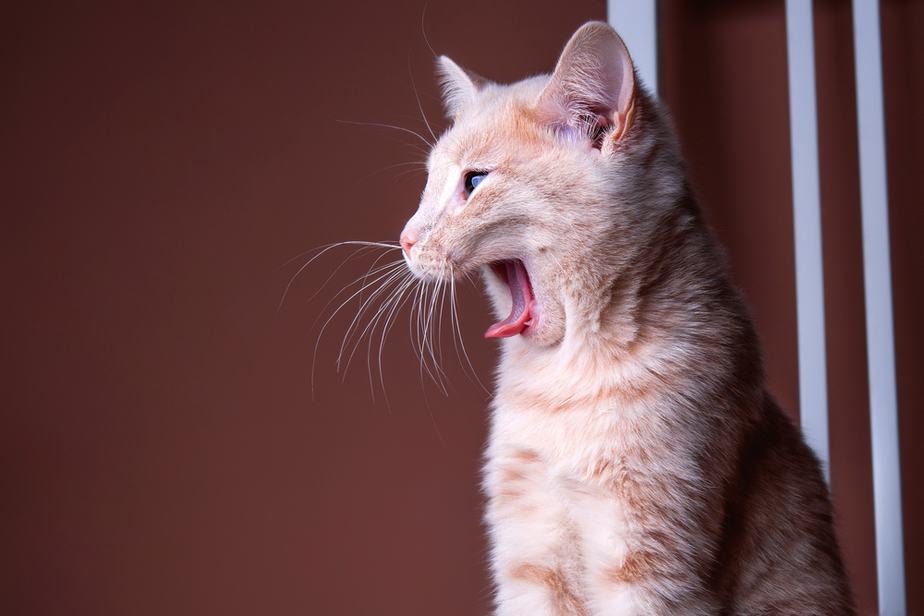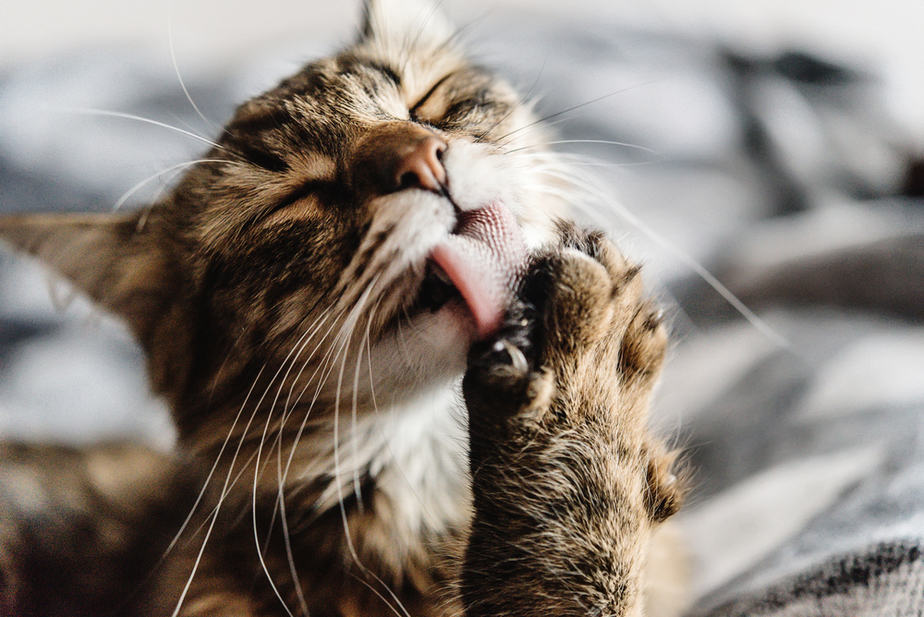📖 Table of Content:
Teryaki jackfruit sushi, pulled jackfruit sandwiches, jackfruit BBQ ribs… You don’t have to be vegan to try these mouth-watering recipes. This mysterious fruit seems to be a versatile addition to your pantry, and you can’t help but wonder whether you can share it with your kitto. But can cats eat jackfruit?
Let’s be honest, your feline friend isn’t the biggest fan of fruit. She loves munching on anything with real meat, whether it’s carefully packaged cat food or a gourmet steak. She’s happy as long as she gets her daily dose of animal protein. Don’t forget that cats are carnivores!
In addition to that, nature’s candy gets quite a bad rep in the feline world. Firstly, your precious purrincess doesn’t even have sweet taste receptors, so she couldn’t care less for peaches, papaya, or jackfruit. Secondly, fruit contains too much sugar, which makes it harmful to their digestive system.
And lastly, certain types of fruit can be toxic to cats. For example, citrus fruits are incredibly harmful to felines because they contain essential oil extracts such as limonene and linalool. Fruit leaves, stems, skin, and seeds can contain cyanide and other dangerous toxins.
With all that in mind, can cats eat jackfruit? While this peculiar fruit does seem to be a great meat substitute for humans, it might not be the best choice for your feline friend. Jackfruit isn’t officially listed as a toxic plant, but there are many other reasons you should avoid feeding it to your cat.
What is jackfruit?
Have you ever heard of a plant that can flip between savory and sweet flavors? Depending on the level of ripeness, it can act as an excellent BBQ meat substitute or an addition to your favorite dessert. Yep, we’re talking about jackfruit.
Jackfruit is a tropical tree fruit grown in Asia, South America, and Africa. This peculiar fruit can weigh up to 40 pounds, which makes it the largest tree-borne fruit in the world. Once you remove its thick and bumpy rind, you’ll find heaps of stringy flesh that can be cooked or eaten raw.
The most intriguing part about this fruit is the fact that you can use it for both savory and sweet dishes. Unripe jackfruit has a meaty texture and it’s quite neutral in flavor. You can play with different spices and sauces to make it taste like the real deal. This is the most popular way most humans prepare it.
Not only is it incredibly versatile, but jackfruit comes with an array of nutritional and health benefits for humans. This peculiar fruit is packed with vitamins, minerals, and antioxidants. It’s also anti-inflammatory and antibacterial, and it can help humans control their blood sugar levels.
But, does it have the same health properties in the feline world? Can cats eat jackfruit? Unfortunately, cats can’t eat this flavourful meat substitute. Jackfruit isn’t considered toxic to cats, but…
It does belong to the fig family. If you’ve been a cat parent for a long time, you’re probably aware that figs (and everything related – leaves, stems, and sap of figs) are extremely harmful to cats. This is the main reason it’s believed you shouldn’t introduce jackfruit into your feline friend’s diet.
Why you shouldn’t feed jackfruit to your cat
While it’s true that cats require heaps of meat in their diet, it doesn’t mean you should feed your feline friend substitute meat on a daily basis. Pulled jackfruit might have the appearance of the real deal, but it doesn’t contain all the essential nutrients for your obligate carnivore.
Don’t get me wrong, jackfruit is packed with yummy vitamins, minerals, and antioxidants (like vitamin C, vitamin B6, niacin, riboflavin, folic acid, calcium, magnesium, potassium, and phosphorus). Some of these vitamins are essential in your cat’s diet, yet you shouldn’t source them from this particular fruit.
Unfortunately, the risks outweigh the benefits when it comes to jackfruit. If your feline friend is obsessed with stealing your food, you should consider a couple of things before leaving a plate of this delicious stringy flesh unattended. There are a couple of reasons cats can’t eat jackfruit!
1. Jackfruit is packed with sugar
Trust me, your cat isn’t the biggest fan of sugar! You might think she loves eating sugary treats for the same reason you do, but chances are she’s eating them out of sheer curiosity. Cats don’t have sweet taste receptors, which means they can’t taste the sweetness of foods.
And if that wasn’t enough, sugar can be extremely harmful to your cat. While it isn’t on the list of toxic ingredients, sugar can wreak havoc in your precious pet’s body if consumed in excessive amounts. Your cat’s digestive system isn’t designed to break down carbohydrates.
Jackfruit has quite a high sugar content – 100 grams of this fruit contains around 31.50 grams of sugar. If your cat accidentally eats one too many bites of jackfruit, she might experience symptoms such as an upset stomach, discomfort, vomiting, and diarrhea.
Not only that, excessive sugar consumption might lead to serious health problems in the long run. Weight gain, tooth decay and other teeth-related issues, and diabetes are only some of the complications that might arise from eating too much jackfruit (or any other fruit, for that matter).
2. Jackfruit seeds are a choking hazard
”If you think I’m out of puns, you don’t know jackfruit!” All bad jokes aside, jackfruit is unfortunately a choking hazard to your precious pet. She might regret deciding to give it a chance as soon as she discovers jackfruit contains seeds!
Unfortunately for cat parents, their little monsters are curious creatures. They will nibble on that piece of jackfruit you gave them without a care in the world. You shouldn’t be surprised if your cat isn’t careful enough to spit out those pesky seeds.
It’s better to err on the side of caution. If you were thinking about sharing that delicious pulled jackfruit sandwich with your cat, make sure to remove all seeds beforehand. Or even better, skip the whole sharing shebang and enjoy your lunch out of your kitto’s sight.
3. Jackfruit might be toxic to cats
While the toxicity of jackfruit hasn’t been studied much for felines, it is known that this fruit belongs to the fig family. Figs contain proteolytic enzymes and psoralen, which makes them incredibly harmful in the cat world. These toxins can attack a cat’s DNA, causing a host of problems.
Cats can also experience fig poisoning, which is characterized by digestive issues such as vomiting and diarrhea. In some severe cases, they can experience more distressing complications like convulsions, foaming at the mouth, and even coma.
Unfortunately, jackfruit also contains psoralen. This is the main reason cat experts advise against feeding it to your cat. There are so many better alternatives on the market that exposing your precious pet to such a risk really isn’t worth it.
What to do if your cat accidentally eats jackfruit
If you’re still wondering whether cats can eat jackfruit, the answer should be pretty clear by now. Cats can’t and shouldn’t eat jackfruit. Not only is it rich in sugar, contains seeds that can be a choking hazard, and contains potentially harmful toxins, but it’s also completely unnecessary in your cat’s diet.
So, what do you do if your little guzzler gets hold of some jackfruit? First things first, don’t panic! A small amount of this peculiar fruit is unlikely to cause any harm to your cat. But do keep an eye out for any symptoms of poisoning like discomfort, lethargy, vomiting, and diarrhea.
If these symptoms go untreated, they can lead to severe dehydration. It’s incredibly important that you contact your vet immediately and follow his suggestions. If you’re worried your cat might have eaten more than it seemed at first, you should take her to the nearest animal emergency center.
In the case of jackfruit poisoning, your vet might induce vomiting to help get any residue out of her system. He might even introduce activated charcoal to help absorb psoralen and other toxic substances. If any of these measures need to be taken, stay calm and follow your vet’s instructions.
Your precious purrincess should be as good as new in no time. Use the experience as a nudge in the right direction when it comes to controlling everything that goes into your cat’s mouth. Don’t let her curiosity get the best of her!
Can cats eat other fruit?
While fruit isn’t a necessary element in your cat’s regular diet, she can enjoy a fruity treat every now and then. Fruit is packed with vitamins, minerals, and antioxidants, which make them excellent snacks for most ravenous rascals.
If you’re looking for a good jackfruit substitute, you’re in luck! Most fruits aren’t toxic to cats, so you can choose between delicious mangoes and mouth-watering papayas. Or you can even go for flavourful peaches. The world of cat-friendly fruit is filled with possibilities!
But – and there’s always a but when it comes to feeding your cat anything packed with carbs. Always consult with your vet before making significant changes to your cat’s diet. While most fruit is safe for feline consumption, it’s better to avoid a catastrophe!
So, can cats eat jackfruit?
No, cats can’t eat jackfruit! This uncommon fruit might be your favorite meat substitute, but your feline friend wouldn’t agree. She prefers to munch on real meat that will provide her with her required animal protein, vitamins, and minerals.
Jackfruit contains too much sugar, seeds that might become a choking hazard, and toxins that might harm your cat in the long run. With all that in mind, it’s safe to say that jackfruit isn’t worth the risk. Your feline friend is better off without it!
Read more: Can Cats Eat Durian? Is It Too Stinky For Your Picky Eater?






